Talks
We are super excited about the lineup of talks for this year, get ready to join us on October 16th and 17th, 2025.
Behind the Insights: How we keep missing disability in UX Research and what to do about it
As accessibility efforts mature within a team, someone eventually asks, “Can we include disabled people in our research?” The answer should be an easy yes — but in practice, it often doesn’t happen.
This talk will explore the everyday barriers that prevent researchers from including disabled participants, from recruitment hurdles to inaccessible tools. But it will also go deeper to confront the ableist work practices that keep disabled people out of research roles altogether. We’ll get honest about how well-meaning teams contribute to a cycle of exclusion, even when inclusion is the stated goal.
Michele A. Williams

Dr. Michele A. Williams is the author of "Accessible UX Research" and owner of M.A.W. Consulting, LLC – Making Accessibility Work. With 20 years of experience, she has influenced top tech companies as a Senior User Experience (UX) Researcher and Accessibility Specialist.
She holds a PhD in Human-Centered Computing with a focus on accessibility and is a W3C-WAI Invited Expert, international speaker, published academic author, and patented inventor. Michele is passionate about designing technology that does not exclude disabled users and about building a research culture that centers disability equity.
Inclusive Data Visualization with AI Descriptions
Data visualizations, such as charts, can be challenging to make accessible. Doug will describe dataviz problems and solutions, and illustrate best practices through ParaCharts, a new AI-enhanced data visualization tool, focusing on the importance of personalization, cognitive load, and multimodal experiences to achieve equitable access to data.
Doug Schepers
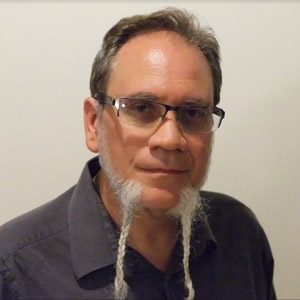
Doug Schepers has experience with project management for SVG, web apps, web audio at W3C for a decade, where they recognized the need for accessible data visualizations.
Doug founded Fizz Studio to advocate for accessible dataviz while consulting with major companies to improve their charts. Fizz Studio also developed inclusive chart software.
The Anatomy of an Accessible Chat Interface
The most common entry point when using AI is the chat or prompt interface. Unfortunately, many of these popular portals to generative content are not accessible to all. Let's examine the anatomy and lay the groundwork for an accessible interface.
Homer Gaines
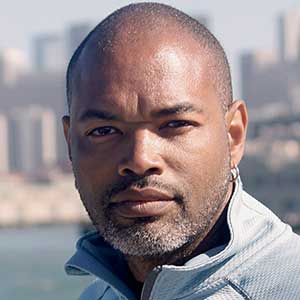
Homer Gaines is a designer, UI engineer, and certified accessibility professional with over 30 years of experience. With a background in behavioural psychology and neurology, his focus is on leading, promoting, and advancing accessibility at every stage in the product development lifecycle.
Ally Keys: A hardware tool for Mobile Keyboard Accessibility
Ally Keys is an external hardware keyboard for mobile devices.
But here's the twist: It has no keys! It can help you test keyboard, screen reader, and switch right from the comfort of your main computer rather than needing to know how to use each separately.
Quintin Balsdon
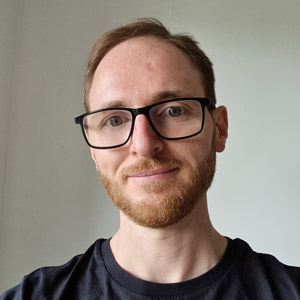
Quintin Balsdon has a background in Android development. He fell in love with Accessibility in 2020 and loves playing with tech to make things more accessible.
Quintin likes all things native mobile, the Internet of Things, test driven development and automation.
From Punchlines to Policy: Storytelling, Visibility, and the Fight to Belong
What does it mean to truly be seen—in workplaces, on screens, and in systems built without you in mind?
In this bold and personal talk, Pooja Joshi—a writer, producer, stand-up comic, and equity leader at CBC—unpacks how storytelling can be a tool for structural change. Drawing from a career that spans continents, genres, and uncomfortable conversations, she shares lessons from five years of running a mentorship program for racialized women, serving on a national equity committee, and creating digital platforms that center belonging over hierarchy.
With humour, heart, and hard-won insight, Pooja invites us to reimagine inclusion not as a checkbox—but as a creative, courageous act of design.
Pooja Joshi

Pooja Joshi is a writer, producer, and stand-up comic who thrives on telling bold, people-focused stories. She has performed for 500-strong crowds, trained an ensemble cast of 20 actors on a feature film, and jumped from 20,000 feet—because why not?
With a film degree from York University and drama training in Toronto and Mumbai, She brings a fearless, resourceful, and can-do mindset to every project—always seeking the story in the unexpected.
How to build an A11y support system that works
Your company has committed to accessibility—great! But how do you handle the never-ending influx of questions, design reviews, and engineering support at your work?
Support can be time-consuming, yet with a few processes and clear directions, you can streamline your work and prioritize your tasks without burnout.
Morgan Kestner

Morgan is a Senior Accessibility Engineer at Indeed. She began her engineering journey nine years ago when she noticed the sites her sister was navigating were difficult to navigate with assistive technology.
With a design background and strong will, she switched her career to help build better, accessible sites. Since then, she has contributed to building out accessible design systems, too many emails, and understanding what really gets people to change and write better code.
Tiny CSS, Big Impact
Learn the tiny CSS techniques that deliver big accessibility benefits.
This talk explores the incredible power of tiny CSS snippets that create big accessibility improvements, proving that sometimes the most impactful code is measured in lines, not libraries. We'll dive deep into practical, copy-paste-ready CSS solutions that require minimal implementation time but deliver maximum inclusivity. Each snippet comes with real-world context, showing exactly how these small changes impact actual users.
Mike Mai
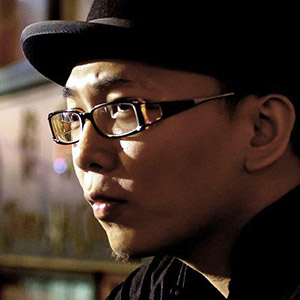
Mike Mai is an expert in design systems, web accessibility, HTML/CSS, and typography. His design philosophy is rooted in a fundamental understanding of the web. Mike's passion for typography, cultivated during my BFA in Graphic Design at Massachusetts College of Art and Design, directly informed my decision to pursue web design professionally. He considers typography to be the most critical foundation of any website, given its text-centric nature, making typeface selection and typesetting my first order of business on any new projects.
Mike firmly believes that design is about solving problems, a principle instilled by a formative mentor. This conviction drove his path to specializing in accessible web design. While strong typographic forms are important, they must be balanced with robust function and an intuitive user experience. He is committed to ensuring all his designs are usable, useful, and truly inclusive.
Users know best: Embracing user styles for resilient designs
Users can choose from various ways to view your content, including fonts, text size, dark mode, reader mode, custom stylesheets, and more. By leaning into these user customizations instead of resisting them, we can design in a more resilient way that meets users where they are.
We'll explore some common ways users customize their devices and examine techniques for anticipating and embracing those changes. Some specific examples will include Windows High Contrast Mode (aka forced-colors in CSS), changing the device font size, and user stylesheets.
Josh Hetrick
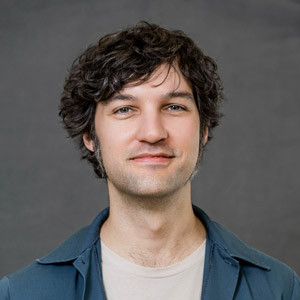
Josh Hetrick is an accessibility-first designer based in Portland, Oregon. He has led accessible design programs at multiple companies, including Cvent and Discogs.
Josh also co-organizes the Portland User Experience & Accessibility Meetup. Beyond the screen, He is a community activist for safer (and funner!) transportation, volunteering with community groups such as Shift and Bike Loud PDX.
The Illusion of the Rational User - Misbehavior, Distraction, Mistakes and Accessibility Testing for Real Life
We often assume that users behave rationally, believing they read instructions, follow a linear path, and complete tasks without error. But real interactions are far messier. People misclick, get distracted, skip instructions, or abandon tasks. For users with cognitive disabilities, ADHD, trauma histories, or anxiety, these behaviours are not edge cases. They are daily realities.
Ina will demonstrate how accessibility testing can address these challenges through practical strategies based on cognitive accessibility principles, behavioural science, trauma-informed design, and emotional accessibility, making systems more forgiving, predictable, and inclusive.
Ina Tsvetkova
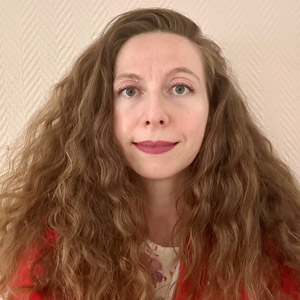
Ina Tsvetkova is a Senior Advisor in Digital Accessibility and Inclusive Design at the Norwegian Labor and Welfare Administration (NAV). She is a Certified Professional in Web Accessibility (CPWA), an Advisory Board member in the IAAP Nordic Chapter, a certified Trusted Tester and an ISTQB Advanced Level Test Manager and Test Analyst.
Ina advises on all areas of digital accessibility in the product development lifecycle process, including planning, design, development, testing, and procurement. She has also participated in two Norwegian standards about accessibility in the procurement process and accessibility in the workplace, as well as the European standard "Accessible systems for living independently.
Accessiologically: Humanizing Accessibility Compliance Through Experiential Examples
This talk offers a poetic yet practical perspective on digital accessibility. Through the original piece “Accessiologically,” Albert will guide the audience through the emotional, cognitive, and navigational barriers people face when digital products aren’t accessible. The poem’s structure reflects the layered nature of real-life testing: reading and understanding, scanning and navigating, interacting and reflecting.
This session provides space for the human impact—the confusion, frustration, or relief users experience, beyond compliance, by integrating storytelling, experiential testing techniques, and critical reflection.
Albert Gareev
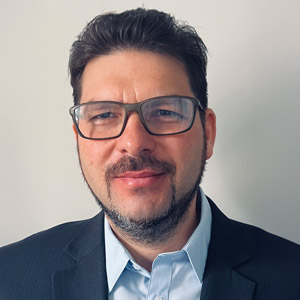
Albert Gareev is an accessibility advocate, poet, and systems thinker whose work bridges the technical, the human, and the creative. With over 20 years of experience in digital systems design, testing, and quality assurance, Albert is known for crafting inclusive digital experiences that don't just meet compliance—but connect with real people.
A self-described “writer-engineer”, Albert blends his technical expertise with deep empathy and poetic storytelling. His approach—equal parts rigour and reflection—has earned him recognition in both professional and creative communities. As a non-native English speaker and immigrant, he brings a unique perspective to the accessibility space, championing cognitive diversity and inclusive communication.
It is designed to break your heart: Cultivating a harm reduction mindset as an accessibility practitioner
Working in digital accessibility requires so much. From design, to code, to theory, to practice. There’s also minding arcane, technical details, all the way up to the holistic big picture. Then factor in concerns like history, politics, law, and armchair psychology.
For many of us, it is also deeply personal work, felt far deeper than the day-to-day requirements of a regular job. The constant demand for perfection, coupled with the asymmetry of power that accessibility work compels, is a recipe for harm if boundaries and protections are not established.
This talk references the practice of harm reduction as a methodology to help you sustain your best efforts and avoid burnout.
Eric Bailey

Eric is an accessibility advocate, writer, developer, and speaker.
Talkin’ Tables
This session will walk through the basics of how to construct an HTML table. More than basic structure, it will talk about support and how it is exposed to screen readers in particular. With that foundation it will walk through patterns for responsive tables, fixed column and/or row headers, sortable tables, tables with expandable content, labeling controls in a table, and selecting rows. Each of these will take into account WCAG conformance, actual support, and the necessary HTML, ARIA, CSS, and JavaScript to pull it off. Even if you cannot apply these to your table patterns, they should give you insights into how to consider the code in your own tables. We probably won't talk about grid roles. At least not much.
Adrian Roselli

Adrian has been a member of the W3C Web Platform Working Group, W3C Accessible Rich Internet Applications Working Group, and W3C Accessibility Task Force. He has written articles for trade journals, web sites, and participated as an author and editor on five web-related books. Back in 1998 he co-founded a software development consulting firm before leaving at the start of 2016 to start all over. Some may recognize Adrian from his days helping to run evolt.org, one of the first communities for web developers. Adrian has been developing for the Web since 1993.
More Than Screen Readers: The Broader Impact of ARIA
ARIA isn’t just for screen readers—it supports a range of assistive technologies, including voice control, switch devices, and more. In this talk, we’ll explore the broader impact of ARIA and discuss considerations for creating robust experiences.
Daniel Dafoe
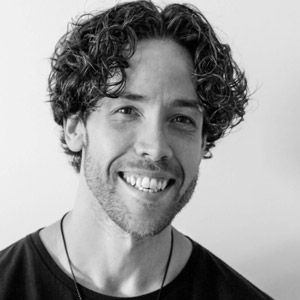
Daniel Dafoe is a seasoned design engineer who currently leads accessibility engineering for an e-commerce store. With a background in design systems, front-end development, and inclusive design, he brings a unique blend of technical rigour and uncompromising user experience thinking to his work. Daniel has taught the next generation of web professionals as a professor at George Brown College, helped shape an accessible design system at RBC Digital as a design technologist, and spent many years crafting elegant, user-friendly web experiences as a front-end engineer. Known for his playful and engaging presentation style, Daniel leaves audiences both intrigued and empowered with lasting knowledge.
Trauma-Informed Design Research: Creating Safety in User Engagements on Sensitive Topics
Design is more than what users see: beyond fonts, colours, and legibility. It’s also about how we engage with people throughout the process. As designers and researchers, we gather stories and insights to center real experiences in the systems we build. But whether you work in healthcare, justice, housing, or accessibility fields, many of the people we interview and co-design with carry a history of adversity, marginalization, or trauma.
What if the way we conduct research unintentionally harms the very people we aim to support? How do we create emotional and psychological safety during interviews, testing, and co-design sessions?
This talk is especially relevant to Service Designers, UX Researchers, Civic Innovators, and Accessibility professionals working in complex or equity-driven spaces. You’ll leave with strategies to make your design work relationally safe and ethically grounded.
Hitomi Yokota

After more than a decade leading service design and innovation projects across the private, public, and civic sectors, Hitomi Yokota became a licensed Psychotherapist. She now bridges design and mental health by bringing trauma-informed care principles into design and research practices. Through her teaching and consulting, Hitomi helps practitioners embed accessibility, inclusion, ethics, and emotional safety into their work, reshaping how we engage with people in sensitive, equity-driven contexts.
Culture eats Technology for Breakfast
When it comes to digital accessibility, many organizations often turn to tools and audits first. This is increasingly moving from automated testing tools to mystical AI tools. Audits and tools play a crucial role in a comprehensive accessibility strategy. But without the right organizational culture behind them, they often fall short.
Why? Because, as management expert Peter Drucker famously said, “Culture eats strategy for breakfast.” In the accessibility world, we might adapt that to say: “Culture eats technology for breakfast.”
No matter how powerful your tools or how advanced your platforms, true digital inclusion doesn't scale without a supportive culture. If we want accessibility to stick, we need culture change: authentic buy-in, leadership commitment, accountability, positive encouragement and space to make mistakes and learn. Let's discuss what this should look like.
Stewart Hay

Stewart Hay is the Managing Director and one of the co-founders of Intopia, a specialist inclusive design and accessibility consultancy working towards creating a more inclusive digital world. He is also one of the original founders for A11y Bytes and A11y Camp Australia.
He has made a career helping organisations to successfully embrace technology for improved business and social outcomes. Stewart has a passion in the convergence of topics around strategy, innovation, technology, culture, diversity and inclusion.



